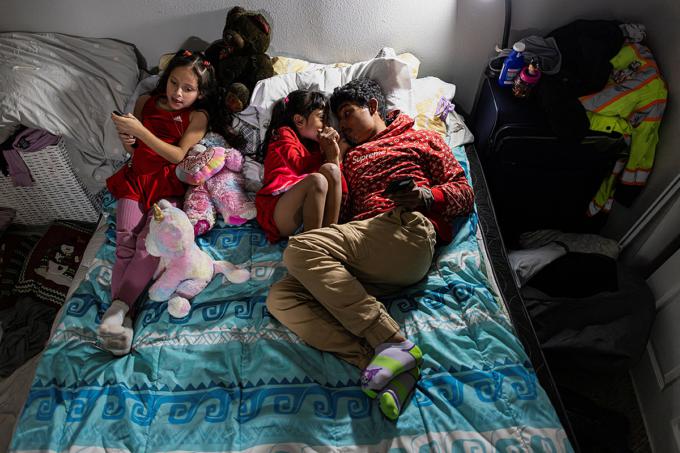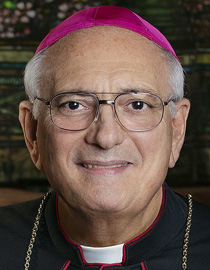
Faith

Deportations and a change in visa allocations favoring temporary workers instead of legal permanent residents, who are eventually eligible for naturalization, will create problems for the integration of permanent outsiders into our nation.

DiMarzio
As we enter a new presidential term, the social policy question before our nation will largely be the restriction or expansion of immigration. A recent article succinctly put it in these terms: "Immigration has both advantages and disadvantages that must be considered. It provides economic benefits, fills labor gaps, promotes cultural diversity, and supports the global economy through remittances. However, it can also create pressure on public services, impact wages, and give rise to social challenges."
To fully explain the concepts involved in this statement would take a great deal of time and space. However, there are two issues embedded in this summary of costs to benefits that will be before us as a nation in the coming months. Will the mass deportation of undocumented immigrants benefit the nation? And, will an increase in temporary workers in the industrial and agriculture sectors also benefit our nation? These are two social questions. However, the moral question is, how will it affect our migrant families?
Restrictions to immigration will likely take place through the massive deportation of undocumented persons already in the United States. The ordinary deportation of criminal aliens has always been part of immigration law enforcement, as well as massive deportations, as at the end of the Bracero Program in the 1950s.
From those who have studied the prospect of mass deportations, we are seeing that the deportation of the approximately 11,000,000 undocumented would have many more disadvantages than advantages. Our labor market is at nearly full employment with less than 5 percent unemployment. Migrants make up, depending on locality, 6% of the labor market. The actual costs of deportation seem to far outweigh any benefits created by the inadequate labor supply, especially in agriculture, construction and service industries.
Deportations and a change in visa allocations favoring temporary workers instead of legal permanent residents, who are eventually eligible for naturalization, will create problems for the integration of permanent outsiders into our nation.
The problems created by temporary visas are substantial. These problems create a system of indentured workers who cannot leave the employer who filed for their visa. In some circumstances, they are underpaid and can depress wages for U.S. workers. Finally, at some point, if they cannot adjust their status to become permanent residents, as many do, these people must return to their countries of origin.
The social problems created in other countries with large guest worker programs are something we have not faced here in the United States. Another international problem that is created is what is called "brain drain," meaning that the most educated and skilled workers are lured to the United States, leaving the countries of origin that educated them bereft of their assistance.
An interesting contradiction is being created in that those who want to curtail immigration in all forms are being opposed by those who wish for an expansion of worker visas, usually at the expense of family-based immigration.
This is now the moral question. Since 1965, immigration laws have favored family-based immigration, sometimes derogatorily called "chain migration." Family unity has been the bedrock of our national success as a nation of immigrants. Families help integrate other family members, particularly mothers and fathers of American citizens, as well as brothers and sisters.
Our U.S. immigration system does not provide any integration assistance. It is up to the sponsors to initially assist these newcomers in surviving and adapting to our social system.
Their employers do not usually assist unattached temporary and even permanent workers with the very basics of integration, housing, education and other social integrative services.
Chain migration for families has been attached to the anchor, which has allowed our country to integrate newcomers without much cost to the nation. Unfortunately, chain migration is almost at a standstill because of visa backlogs, which means for some countries -- e.g., the Philippines and India -- it can take 15 to 20 years to reunite with relatives.
When you walk with migrants, you can understand the real issues they face and the contributions they make to our nation of immigrants.
- Bishop Nicholas DiMarzio is retired bishop of the Diocese of Brooklyn, N.Y. He writes the column "Walking With Migrants" for Catholic News Service and The Tablet.
Recent articles in the Faith & Family section
-
Scripture Reflection for April 20, 2025, the Resurrection of the LordFather Joshua J. Whitfield
-
Elon Musk and the impossibleDr. R. Jared Staudt
-
Why do we need confession if Jesus' death cleansed us from our sins?Jenna Marie Cooper
-
JP2, I still miss youJaymie Stuart Wolfe
-
Easter and its octaveFather Robert M. O'Grady























